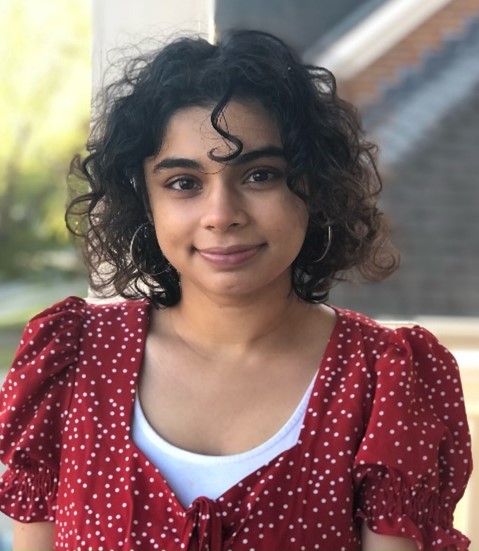Overview
The overall goal of the Raikar laboratory is to develop novel therapeutics for pediatric blood cancers through (i) development of innovative cellular immunotherapies utilizing chimeric antigen receptors, (ii) production of novel recombinant protein-based therapeutics such as L-asparaginase and (iii) identifying new therapeutic targets in rare leukemias utilizing advanced bioinformatic tools. The specific diseases we investigate include acute lymphoblastic leukemia (ALL), acute myeloid leukemia (AML) and mixed phenotype acute leukemia (MPAL). While the survival of pediatric leukemia patients has greatly improved with the intensification of chemotherapy, relapsed disease still accounts for high rate of mortality among childhood cancer patients. Thus, a need exists to develop novel alternative approaches to target relapsed disease with lesser side effects.
In recent years, chimeric antigen receptor (CAR) T-cell immunotherapy for relapsed/refractory B-cell acute lymphoblastic leukemia (B-ALL) has been a revolutionary breakthrough in pediatric cancer. In this form of therapy, the patient's own immune cells (T cells) are genetically modified to express receptors called CARs, which enable them to specifically target B cells. While CAR T-cell therapy is extremely successful in targeting B-cell cancers, the same approach has not been successful in targeting T-cell cancers such as T-cell acute lymphoblastic leukemia (T-ALL), which has a higher rate of relapse and is more difficult to cure compared to B- ALL. One of our main research aims is centered on adapting this novel CAR technology to T-cell disease. Given the lack of a tumor specific antigen in T-cell malignancies, utilizing CAR-based immunotherapy in this disease has been extremely challenging as it can result in (i) fratricide (self-killing) of CAR T cells, (ii) long-standing immunosuppression from T-cell aplasia and (iii) product contamination from accidental transduction of malignant T cells. We are exploring several different approaches to overcome these challenges, including the use of unique immune cells such as natural killer cells and gamma delta T cells. As an extension of this work, we are now also exploring the use of cellular therapy in acute myeloid leukemia (AML), a more aggressive form of childhood blood cancer with survival around 60-70%.
The Raikar lab also has interest in developing novel chemotherapeutics through protein engineering. A current ongoing project is the development of a novel humanized L-asparaginase drug candidate utilizing an innovative protein drug discovery and optimization platform called ancestral sequence reconstruction (ASR). L-asparaginase has been a critical component of the chemotherapy armamentarium used to treat ALL for several decades. However, current L-asparaginases are bacterial in origin, derived from either Escherichia coli and Erwinia chrysanthemi, and hence are highly immunogenic with reactions ranging from silent inactivation to severe anaphylaxis. Additionally, these drugs have a high level of liver and pancreatic toxicity, thus limiting its widespread use. Recent data has shown that discontinuation of L-asparaginase results in poorer prognostic outcomes in ALL. Thus, development of a more humanized and less immunogenic asparaginase is essential to overcome the major deficiencies of the current bacterial L-asparaginase products. We are currently utilizing the ASR platform to identify and characterize potential less toxic L-asparaginase candidates.
Finally, we have a specific interest in studying the biology of mixed phenotype acute leukemia (MPAL), a rare leukemia accounting for only ~2-3% of all pediatric leukemias. MPAL has features of both AML and ALL and can be broadly divided into two major subtypes - B/myeloid and T/myeloid MPAL. While recent literature has suggested that this disease responds better to ALL therapy, there remains no clear consensus as to how to treat this disease. We recently published the first study describing the single cell transcriptomic landscape of pediatric MPAL. We are now expanding this study to include genomic, epigenetic and proteomic analysis and hope to identify novel therapeutic targets to treat MPAL through this work.
- Developing chimeric antigen receptor (CAR) based strategies to target T-ALL and AML
- Utilizing gamma delta T cells in combination with chemotherapeutic agents to target AML and T-ALL
- Utilizing microfluidic mechanotransfection as a means to deliver CRISPR/Cas9 editing molecules for developing gene-edited CAR T-cells (collaboration with Todd Sulchek, PhD)
- Developing a novel humanized L-asparaginase with reduced toxicity utilizing ancestral sequence reconstruction (collaboration with Christopher Doering, PhD)
- Leveraging single cell multiomic analysis to study the biology of MPAL (collaboration with Manoj Bhasin, PhD)
- Studying the effects of the obese microenvironment on CAR T-cell function (collaboration with Curtis Henry, PhD and Sarwish Rafiq, PhD)

Gianna Branella, PhD (PhD, Cancer Biology, Emory University; BS, Biology, Loyola University Maryland)
Postdoctoral Fellow
gianna.branella@emory.edu

Brandon Fanelli, BS (BS, Biomedical Engineering, Georgia Institute of Technology)
Research Specialist Lead/Lab Manager
bfanell@emory.edu

Areeba Hashmi, BS (BS, Biology and Anthropology, University of Georgia)
Research Specialist
areeba.ashraf.hashmi@emory.edu

Kristopher Knight, BS (BS, Pharmacology, The University of the West Indies - Mona)
Graduate Student, Molecular and Systems Pharmacology
kristopher.knight@emory.edu

Vishva Patel (Emory University, Class of 2025, Biology Major)
Undergraduate Researcher
vishva.patel@emory.edu

Emily Sullivan, BS (BS, Biochemistry, University of New Hampshire)
Graduate Student, Molecular and Systems Pharmacology
emily.sullivan@emory.edu
Jamie Y. Story, PhD, MSCR
Role: Graduate Student
Current Position: Medical Writer, Nucleus Global, Atlanta, GA
Navdeep Jhita, MD
Role: Post-Doctoral Fellow
Current Position: Visiting Fellow, Meier Lab, Emory University, Atlanta, GA
Kinnede White, BS
Role: Research Specialist
Current Position: Benefit Analyst, OneDigital Health and Benefits, Atlanta, GA
Yu T, Jhita N, Shankles P, Fedanov A, Kramer N, Raikar SS, Sulchek T. Development of a microfluidic cell transfection device into gene-edited CAR T cell manufacturing workflow. Lab Chip. 2023 Nov 7;23(22):4804-4820. doi: 10.1039/d3lc00311f. PMID: 37830228; PMCID: PMC10701762. (Co-senior authors).
Mumme HL, Raikar SS, Bhasin SS, Thomas BE, Lawrence T, Weinzierl EP, Pang Y, DeRyckere D, Gawad C, Wechsler DS, Porter CC, Castellino SM, Graham DK, Bhasin M. Single-cell RNA sequencing distinctly characterizes the wide heterogeneity in pediatric mixed phenotype acute leukemia. Genome Med. 2023 Oct 16;15(1):83. doi: 10.1186/s13073-023-01241-z. PMID: 37845689; PMCID: PMC10577904.
Story JY, Zoine JT, Burnham RE, Hamilton JAG, Spencer HT, Doering CB, Raikar SS. Bortezomib enhances cytotoxicity of ex vivo-expanded gamma delta T cells against acute myeloid leukemia and T-cell acute lymphoblastic leukemia. Cytotherapy. 2021 Jan;23(1):12-24. doi: 10.1016/j.jcyt.2020.09.010. Epub 2020 Nov 6. PMID: 33168453; PMCID: PMC8075174.
Oberley MJ, Raikar SS, Wertheim GB, Malvar J, Sposto R, Rabin KR, Punia JN, Seif AE, Cahen VC, Schore RJ, Luca DC, Guinipero T, Woods WG, O'Gorman MRG, Orgel E. Significance of minimal residual disease in pediatric mixed phenotype acute leukemia: a multicenter cohort study. Leukemia. 2020 Jul;34(7):1741-1750. doi: 10.1038/s41375-020-0741-0. Epub 2020 Feb 14. PMID: 32060402; PMCID: PMC7332384.
Fleischer LC, Spencer HT, Raikar SS. Targeting T cell malignancies using CAR-based immunotherapy: challenges and potential solutions. J Hematol Oncol. 2019 Dec 29;12(1):141. doi: 10.1186/s13045-019-0801-y. PMID: 31884955; PMCID: PMC6936092.
Raikar SS, Fleischer LC, Moot R, Fedanov A, Paik NY, Knight KA, Doering CB, Spencer HT. Development of chimeric antigen receptors targeting T-cell malignancies using two structurally different anti-CD5 antigen binding domains in NK and CRISPR-edited T cell lines. Oncoimmunology. 2017 Dec 26;7(3):e1407898. doi: 10.1080/2162402X.2017.1407898. PMID: 29399409; PMCID: PMC5790337.
Raikar SS, Park SI, Leong T, Jaye DL, Keller FG, Horan JT, Woods WG. Isolated myeloperoxidase expression in pediatric B/myeloid mixed phenotype acute leukemia is linked with better survival. Blood. 2018 Feb 1;131(5):573-577. doi: 10.1182/blood-2017-09-807602. Epub 2017 Dec 9. PMID: 29223952.
Moot R, Raikar SS, Fleischer L, Querrey M, Tylawsky DE, Nakahara H, Doering CB, Spencer HT. Genetic engineering of chimeric antigen receptors using lamprey derived variable lymphocyte receptors. Mol Ther Oncolytics. 2016 Dec 7;3:16026. doi: 10.1038/mto.2016.26. PMID: 27933313; PMCID: PMC5142425. (Co-first authors).
Current Funding:
NIH/NCI: 1K08CA248962-01 - 4/1/2020-3/30/2025
Gamma delta T-cell immunotherapy for T-cell acute lymphoblastic leukemia.
Goal: to target T-ALL with innate-like cytotoxic gamma delta (γδ) T cells using two different strategies, one utilizing cellular stress modulation to sensitize T-ALL to γδ T-cell killing, and the other through the use of CD5-directed chimeric antigen receptors (CARs).
Role: PI
Pediatric Research Alliance Center for Drug Discovery Pilot Award - 10/1/2022-9/30/2024
Utilizing ancestral sequence reconstruction to develop a novel L-asparaginase with reduced toxicity
MPI: Raikar/Doering
R01AI172452 - 12/2/2022-11/30/2027
Mechano-ID for tagging immune cells
PI: Salaita
Role: Co-I
Previous Funding:
R21CA256605 - 12/10/2020-11/30/2023
Microfluidic platforms to generate 'off-the-shelf' fratricide-resistant CAR T cells for T-cell malignancies
MPI: Raikar/Sulchek
Alexis and Jerry Bednyak Foundation Award for Research in High-Risk Leukemia - Children’s Oncology Group - 3/1/2022-2/28/2023
Leveraging power of multi-dimensional single cell profiling for deep characterization of MPAL
MPI: Raikar/M. Bhasin
CURE Childhood Cancer Foundation - 7/1/2022-6/30/2023
Optimizing gamma delta T-cell immunotherapy for acute myeloid leukemia
Role: PI